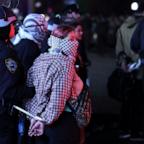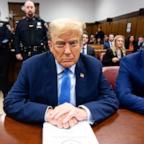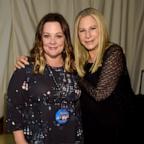Loved ones and confidants remember Farrah Fawcett’s final days: 'During the worst times … we still had fun'
“At the end, she told us she was iconic because she was fearless."
Farrah Fawcett's co-star on "Charlie's Angels" Jaclyn Smith often said that Fawcett's iconic hair "should have its own phone line." The long, softly feathered look was an instant "must-have" for both women and men in the 1970s.
"That signature hair will definitely be remembered forever and ever and ever," said celebrity hairstylist Jose Eber, who made his name styling Fawcett’s hair.
"There was a freedom about Farrah's look. There was something healthy about her. There was something magical, those teeth… that's why she became such a great style icon."
She documented her years-long battle with cancer in a series of raw and intimate video diaries compiled in the documentary "Farrah's Story."
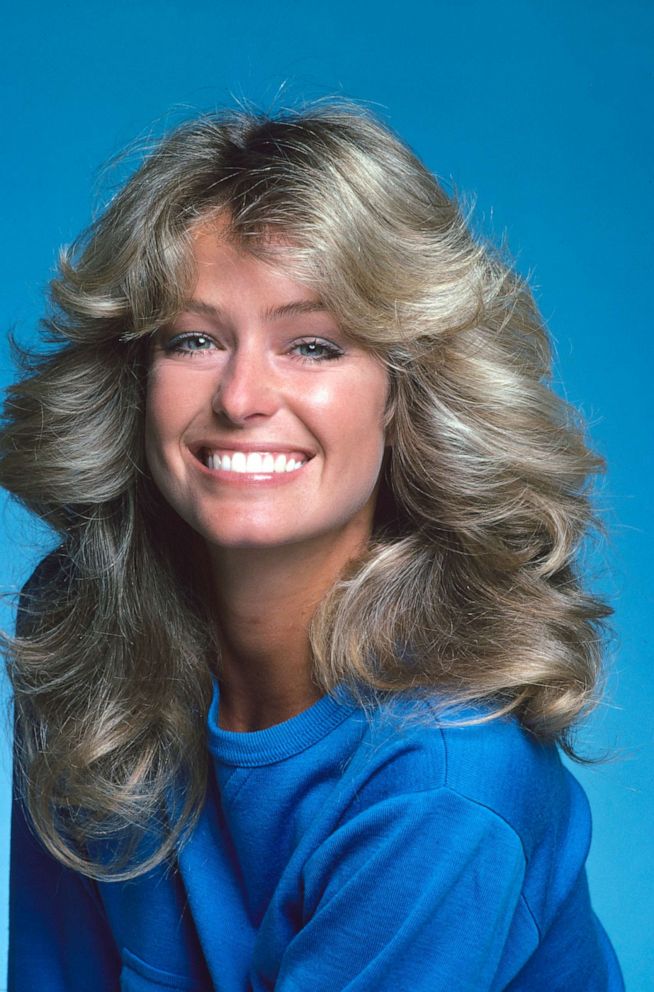
"She was never, ever someone who cried about why she got cancer and someone else didn't," said her oncologist and friend Dr. Lawrence Piro, who is also the chief medical advisor for the Farrah Fawcett Foundation. "She wanted to show everyone that cancer looks the same on one of the most glamorous, beautiful women in the world as it looks on every other woman and every other man."
Watch "This Is Farrah Fawcett" on Thursday, May 23 at 8 p.m. ET on ABC.
Her close friend Alana Stewart helped record her experience with cancer, including the day when she said goodbye to her signature look.
"She had done everything to keep from losing [her hair]. And she hadn't. She still had her fabulous hair," Stewart told ABC News. "The last round of chemo she had lost her hair. And that was hard for her."
Fawcett called her confidante and hairstylist Mela Murphy, who remembered the day she decided to shave her own head.
"I went over to the house and I was brushing her hair, and it was just coming out. I didn't even respond. I was just putting it in my pockets, I was putting in my pants," Murphy told ABC News. "I was just … pulling it out of the brush… I looked behind me in the bathtub, and it was in the drain. For some reason, she was the stronger one, and she could take it more, and she knew."
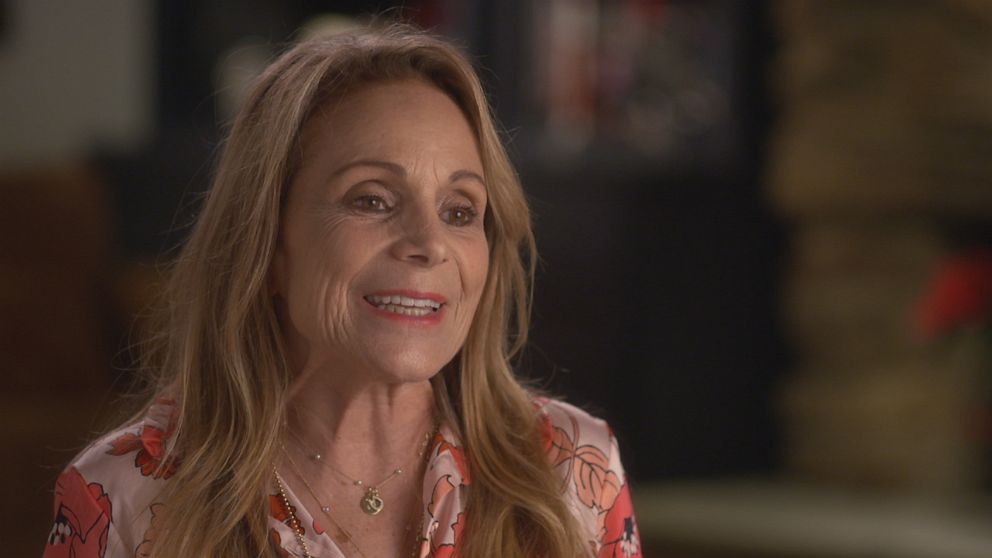
So, she invited her friends to her home when she shaved her hair, including Stewart.
"She wasn't sure she wanted the camera rolling, and I convinced her to let me keep it rolling because I thought it was going to be an important moment," Stewart said.
"It was very important for Farrah to shave her own head so that she was removing her hair, and cancer treatment wasn't removing her hair," Piro said. "It's kind of like that fine line between being a victim and a victor."
Stewart recalled how no one was prepared to hear that Fawcett had been diagnosed with cancer at age 58.
"Farrah was the last person that thought about getting sick," Stewart said. "Farrah was the Golden Girl to everyone so it was such a shock, to the whole world, when she got cancer. It kind of goes to show you that you know, cancer doesn't play favorites."
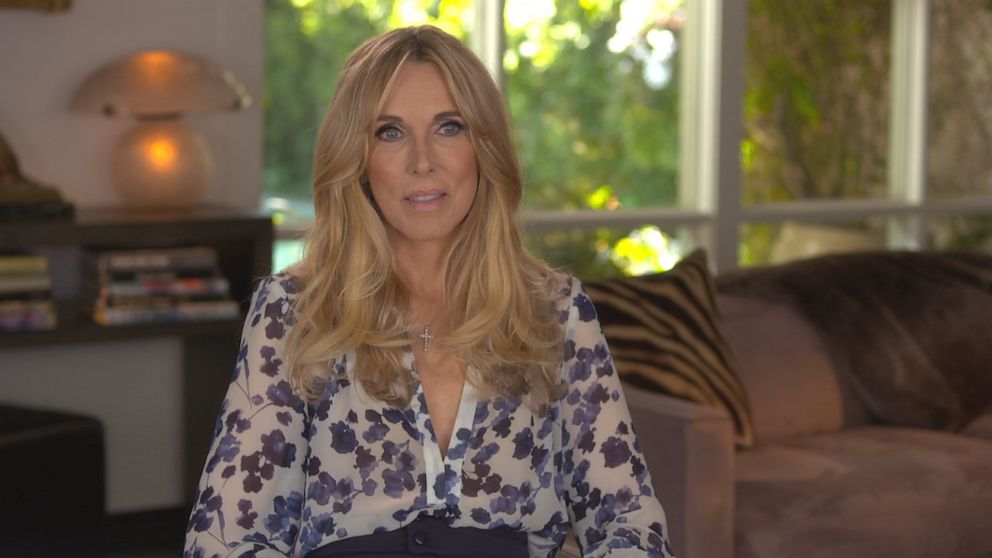
Stewart said she had been exhibiting symptoms for a while when she finally went to a doctor.
"She had a test done, and they discovered that she had this cancer the size of a strawberry," Stewart said. "So I called her and she started to cry. And I think I started to cry."
Fawcett chose to undergo traditional treatment at UCLA, Stewart said. That included chemotherapy and radiation.
"The radiation and the chemo were just devastating," Stewart said. "She had no idea how devastating and how difficult it was going to be."
At first, it worked. "Three months later, the cancer was gone, and we were celebrating," Stewart said.
Then, in May 2007, the cancer was back – this time, stage 4 cancer that had metastasized to her liver.
"She found out that day that the cancer had come back. Which was a huge shock, to all of us," Stewart said. "We just started filming everything… It was just me and a little camera and her. She wanted to document it because she wanted to be able to first of all remember the things the doctors said, what they were doing. And that's kind of how the whole documentary started."
Fawcett decided in 2007 to travel to Germany with Stewart and her longtime partner Ryan O'Neal to receive alternative treatment.
"She called me back and she said, 'We're getting on a plane.' I mean, that's who she was. She was a pioneer, you know," Stewart remembered. "She was going to go and she was going to do whatever cutting-edge therapy that she could do. And that started our German journey, which went on for a little over two years."
Stewart shared that between the two close friends, "during the worst times" there, "we still had fun."
"It was like being two girlfriends off on a trip to Europe, even though it was a very, very serious cause to be there," she said.
Dr. Thomas Vogl, who treated Fawcett in Germany, said hers was "a very special form of cancer… there can be very aggressive tumors -- mostly they are detected not very early, mostly in the quite late phase. When I saw her the first time and she presented here it was stage 4."
Fawcett chose to meet her aggressive cancer with aggressive treatment, which had devastating side effects.
"There was a time when she was so sick and she was just throwing her guts up. And I shut the camera off and she said, 'Why are you not filming this?' And I said, 'Because I don't want to invade your privacy,' Stewart recalled. "She said, 'No.' She said, 'This is what cancer is. Film it.'"
In February 2008, she was back in Germany for more treatments.
"It was her birthday," Stewart said. "And [the doctor] said, 'At this point, you are tumor free.'"
Though that news didn't mean Fawcett was cancer-free, it was still "a great cause for celebration," Stewart said.
"It was for the first time in a long time that things were really looking up," she said. "So [Fawcett] wanted to have a snowball fight. And you know, Farrah's very competitive. And she can be a little aggressive sometimes."
"She looked fabulous. And she felt good. And she was full of energy. And she was so happy."
Stewart said in the documentary, "knowing now what lay ahead for Farrah, I wish I could've frozen that moment in time."
But in April 2008, doctors found new tumors in her body.
"When she heard that news she was crushed. And Ryan put his arms around her," Stewart said. "But she didn't break down. That wasn't Farrah."
Piro said she never wavered once in the course of therapy. "[She was] full steam ahead with any and every therapy option that there was," he said.
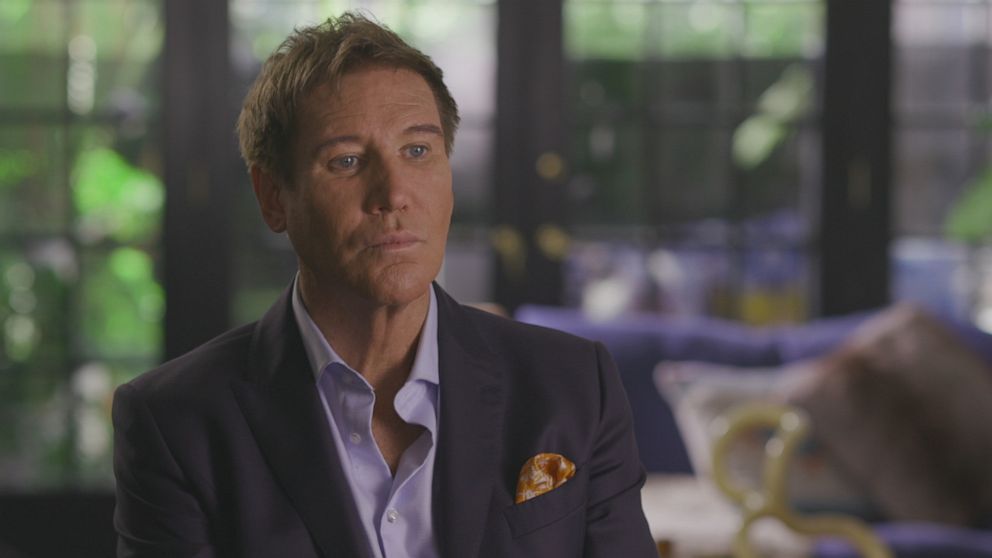
But tragically, Stewart said, it got to a point where "they could hardly get a needle in her vein anymore."
Stewart reflected on their tradition later that year of baking their "Texas pies" on Christmas Eve.
"Farrah would always come over and we would bake our pies and make our stuffing, our cornbread stuffing," she said. "Farrah had to come and lie down for a few minutes and rest in between. But we did it all. And we were still very hopeful. You know, she was weak, she was very weak from all these treatments, but still very hopeful."
Stewart remembered having dinner with Dr. Vogl around that time.
"He said, 'I have to tell you, your friend is in very serious shape and I don't know how much time she has left,'" Stewart said. "That was the first time that anyone had ever really said that. And I didn't tell her. We didn't want her to give up."
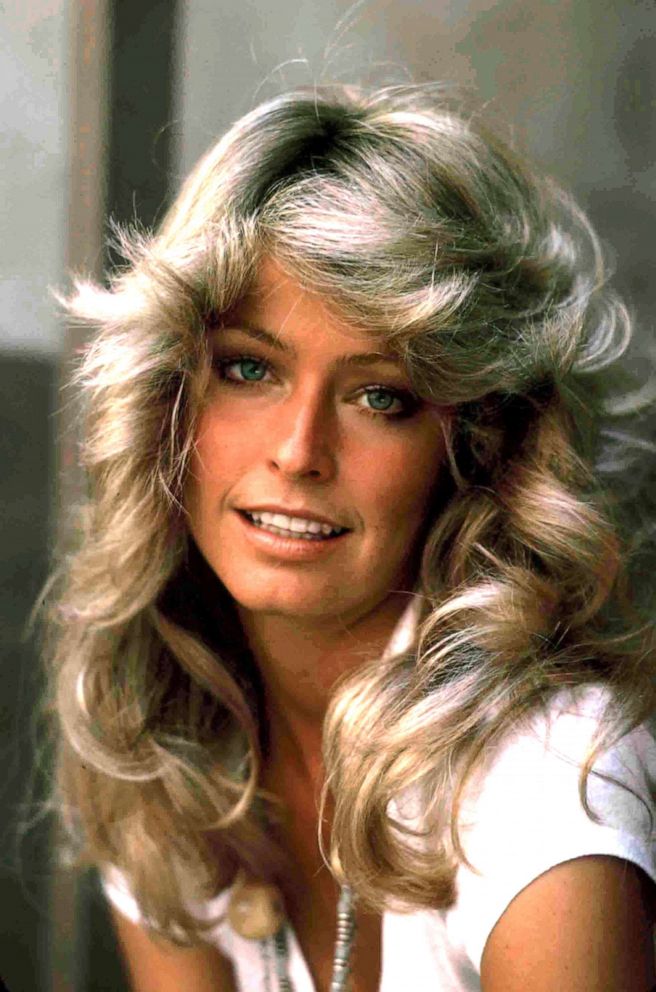
She said Fawcett declined quickly and suddenly.
"She started to hemorrhage, she had an infection. One thing led to another. And she ended up back in the hospital. And then in intensive care. And from there it was kind of, you know we kind of knew that there wasn't going to be a miracle at this point."
Fawcett passed away on June 25, 2009, in Santa Monica, California, with O'Neal and Stewart by her side. She was 62 years old.
"About a week before she died, she was in the hospital and I was sitting by her bed," Stewart remembered. "I remember I was holding her hand and I said, 'You know, you're my sister.' And she said ... She looked up at me, and she was very ill at the time and weak, and she looked up at me and she said, 'More than a sister.'"
For information on Farrah Fawcett's foundation, please visit www.thefarrahfawcettfoundation.org.
